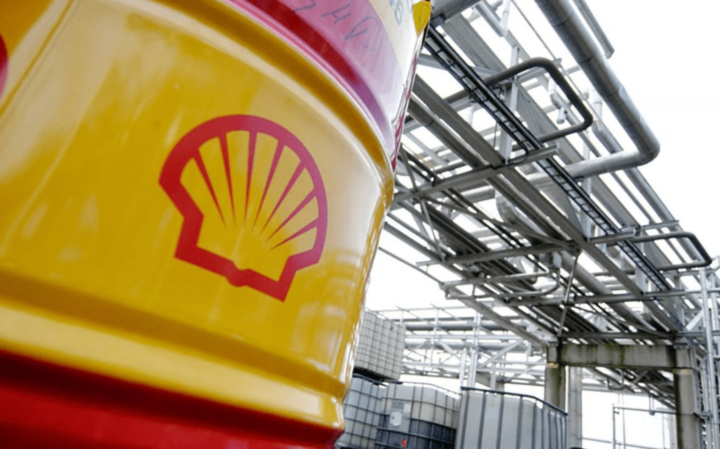Shell Nigeria Exploration and Production Company (SNEPCo) and Sunlink Energies have sealed a landmark $2 billion agreement to develop the long-anticipated HI offshore gas project in Nigeria. The deal, which follows a Final Investment Decision (FID) between both firms, marks a major step toward increasing the nation’s liquefied natural gas (LNG) capacity, boosting domestic energy supply, and strengthening Nigeria’s position in global gas markets.
Discovered in 1985, the HI field is located about 50 kilometers off Nigeria’s coast in water depths of approximately 100 meters. The field holds an estimated 285 million barrels of oil equivalent in recoverable resources. Under the terms of the partnership, Sunlink Energies holds a 60 percent operating interest, while Shell retains a 40 percent stake. The project’s development is part of a broader government effort to harness Nigeria’s vast natural gas reserves for industrialization and energy transition.

At its peak, the HI project is expected to produce up to 350 million standard cubic feet of gas per day—equivalent to around 60,000 barrels of oil per day. The gas output will feed into the Nigeria LNG (NLNG) plant to support its Train 7 expansion, which is projected to raise Nigeria’s LNG exports by several million tonnes annually. Additionally, the project will produce valuable condensate that will be processed and exported, boosting national revenue and foreign exchange earnings.
The project’s infrastructure design includes a wellhead platform with four production wells, a subsea pipeline network linking offshore facilities to onshore processing plants, and gas delivery connections to Bonny Island. Full-scale production is expected to commence before the end of this decade, pending the completion of engineering works, regulatory clearances, and supporting infrastructure.
Nigeria’s Minister of State for Petroleum Resources commended the agreement, noting that the $2 billion investment reflects renewed investor confidence in the country’s oil and gas sector. He said recent reforms, including fiscal and regulatory incentives, have helped reposition the industry and attract major international commitments.
Energy analysts view the HI gas project as a strategic investment that will help Nigeria diversify its energy mix while reinforcing its role as a key LNG supplier to global markets. With growing global demand for cleaner energy sources, gas is increasingly seen as a bridge fuel for countries transitioning away from coal and oil. The HI project’s production capacity is expected to strengthen Nigeria’s LNG supply chain and enhance its ability to meet both domestic and export market needs.
According to industry experts, the HI project will also deliver long-term economic and social benefits. Thousands of direct and indirect jobs will be created during the construction and operational phases, providing new opportunities for engineers, welders, technicians, and logistics providers. The project is also expected to enhance local content participation, with Nigerian companies taking part in fabrication, supply chain management, and engineering services.
Shell executives described the partnership as a demonstration of the company’s commitment to investing in Nigeria’s energy future. They emphasized that the project aligns with Shell’s global strategy of expanding its gas portfolio while supporting local communities and promoting environmental sustainability. Sunlink Energies also expressed confidence in the collaboration, stating that the HI project is designed to maximize resource efficiency and minimize emissions through advanced technology and rigorous safety standards.
The Nigerian government has identified gas as the centerpiece of its national energy transition plan. Under the “Decade of Gas” initiative, authorities aim to develop infrastructure that supports gas-based industries, generate power more efficiently, and increase exports. The HI project is therefore seen as a critical component in meeting these objectives while reducing gas flaring and ensuring a more stable supply of clean energy for industrial use.
Despite the optimism, experts have highlighted several challenges that could affect project timelines. These include delays in securing environmental and operational permits, fluctuating global energy prices, and logistical complexities associated with offshore operations. There are also calls for continuous policy stability and improved security in the Niger Delta region to ensure seamless implementation.
However, the Federal Government has assured stakeholders that it remains committed to providing a conducive environment for project execution. Authorities are currently working with industry regulators to streamline approval processes and strengthen partnerships with international oil companies for sustainable gas development.
The HI offshore gas project follows a recent series of high-value energy investments in Nigeria, including the Ubeta gas project and the Bonga North development, which together represent more than $8 billion in cumulative commitments. Analysts say the momentum underscores a growing confidence in Nigeria’s upstream sector and the potential of gas to drive the country’s economic transformation.
With global energy markets increasingly shifting toward natural gas as a cleaner and more flexible alternative to oil, the Shell–Sunlink collaboration represents a timely and strategic move. The project not only underscores Nigeria’s commitment to becoming a major player in the gas industry but also signals the private sector’s readiness to play a key role in building a more sustainable energy future.
As preparations advance, the HI gas project is expected to reinforce Nigeria’s economic diversification agenda, enhance energy security, and position the country as a major regional hub for natural gas production and export. The success of the venture could mark another milestone in Nigeria’s journey toward harnessing its abundant natural resources to fuel national development and global competitiveness.
Support InfoStride News' Credible Journalism: Only credible journalism can guarantee a fair, accountable and transparent society, including democracy and government. It involves a lot of efforts and money. We need your support. Click here to Donate
